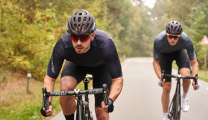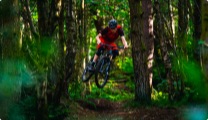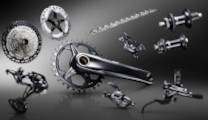It's the day before the Summer Solstice, and Isabel "Iz" King is at home in Southern California when she picks up the phone. The 32-year-old is gearing up for an all-day ride tomorrow. It's going to be the longest day of the year, after all, and what better way to spend it than with a big, epic route on the bike with friends?
King spent four years working in New York on the equities trading floor. She then discovered her talent and passion for riding and racing at age 26. After turning pro at 30, she's making the most of a late-blooming professional off-road career, which is presenting opportunity after opportunity that she relishes, as she begins to explain to SHIMANO….
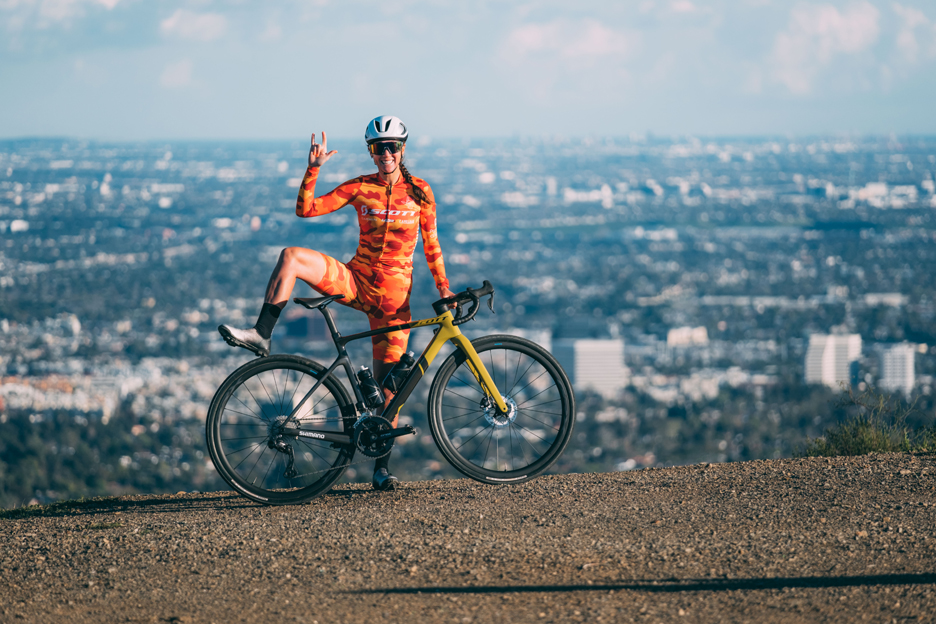
Iz: The racing is very fun, but I have a soft spot for these big long adventure days. I think the lead-up to Unbound is one of my favorite times because you get to do these crazy explore-your-own backyard rides, and it's so fun. Using summer solstice as another excuse…we've got a lot of daylight; let's use it.
Do you prefer a big, long day on the bike just riding, or do you like racing more?
Iz: They’re so different. I fell in love with the big, long days during COVID. We packed some stuff on a bike and did a few tour-de-credit-card style three-day trips and things like that, where I loved seeing what my body could do. I also loved the aspect of your bike as a mode of transportation. Every year we do the Coast Ride, which goes from San Francisco down to Santa Barbara, and I've connected it down to LA. I think those big point-to-point rides, where you remember that the bike was originally a mode of transportation and not just meant for riding around and around fast in a circle, are really beautiful.
At this point in my life, I'm enjoying racing because I have been able to train and put my body in a position where I can race at the top level. So for me, as a super competitive person, it scratches that itch.
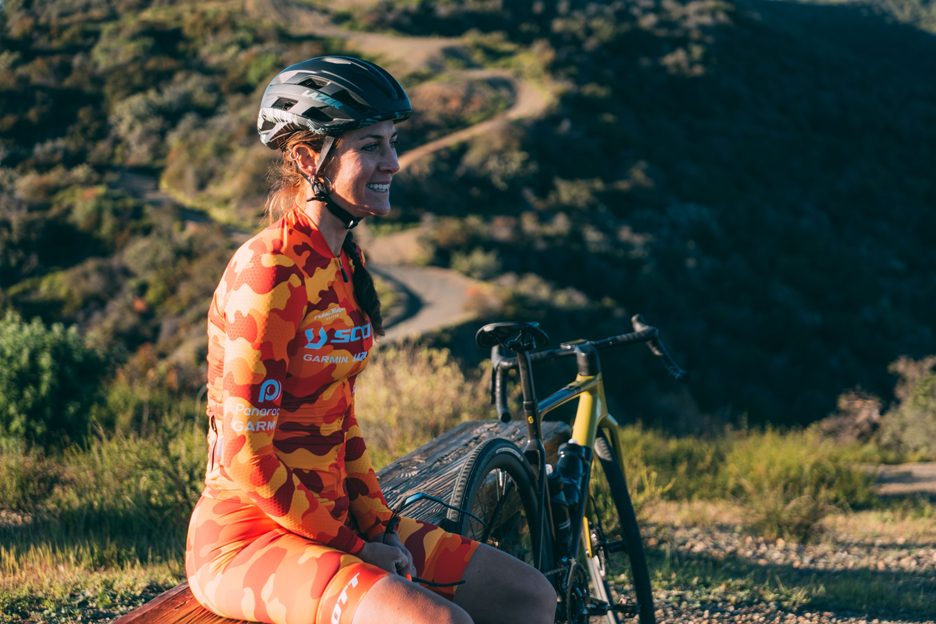
As a competitor, what is it about gravel racing that drives you?
Iz: I love the community element of it. For me, these races are an opportunity to meet new people and hear their stories and hear what they’ve gone through to do each race. That’s a big part of racing for me as well. Yes, the results and the competitive aspect are huge, but I do still consider myself new in this scene. Just to be able to see how much it's grown in the last several years is really fun.
With gravel and off-road racing being very individual sports, does it surprise you that there's still a strong community vibe?
Iz: You walk around the expos a few days before, and there's mutual respect between riders whether you're a pro or it's your first time racing. We're all in this weird sport - the rest of the world thinks that what we do is strange and probably doesn't understand it, so there's this mutual respect. You've got to have screws loose if you're going to go out and do something really crazy and hard. And we all know how much work it took to get to this place. I. think that's beautiful in and of itself. It feels like there are a lot of people there, but in the grand scheme of things, we're a very tiny community.
Where are you currently living?
Iz: I live in Los Angeles and moved here for business school. I went to UCLA Anderson, and I graduated in 2019 with the goal of being a pro triathlete. And when the world shut down after COVID, I focused mostly on the bike. Initially, the goal was to race pro on the road, but I'd done like one CAT 5 crit, and so all the teams that I talked to were like, 'this is great, your power numbers are awesome, but we can't just give you a spot because you've never raced.'
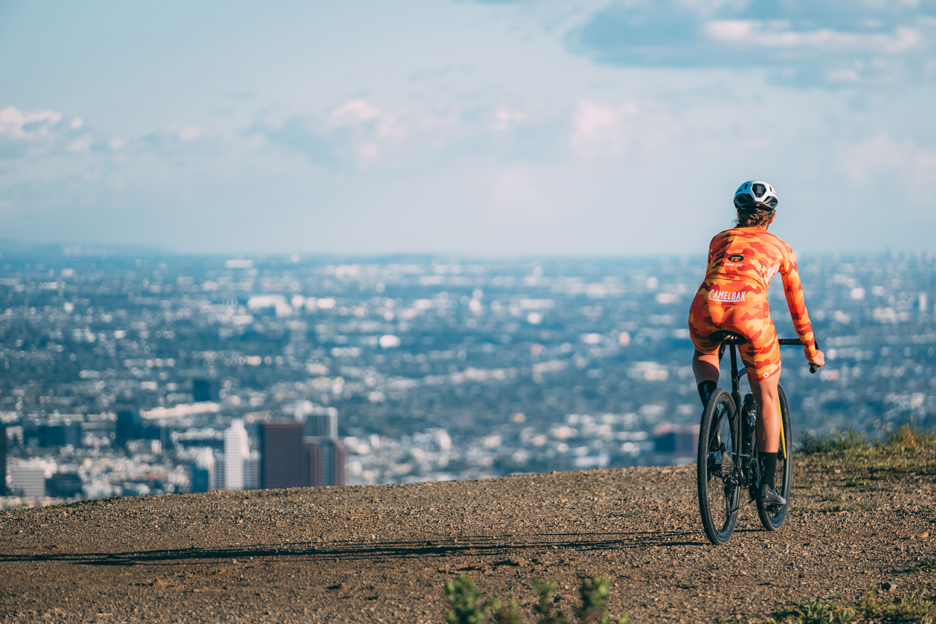
So, I decided to try this gravel thing. It’s been really fun to try and build a brand on my own and use some of the skills I learned in business school, like the marketing and branding side, and see what I can do and if I can make a career out of it in this gravel world. So that's been the last two years.
When did you start riding?
Iz: I played D-I soccer in college, graduated, and then got a job on the [equities] trading floor for four years. During that time, I did a few marathons but thought I would exercise just to be a healthy human in general, and I figured my athletic days were behind me. And then, on a total whim, one New Year's morning - this is kind of embarrassing - it was 2 in the morning, and I said, 'I'M GONNA SIGN UP FOR A HALF IRONMAN!’
I signed up and then woke up the next morning and wondered, 'Huh, I wonder if I can swim that far…'
I quit my job in April of 2017 and was starting business school later that August, so I bought a bike that summer and immediately broke my collarbone. I spent the whole summer in a sling but just completely fell in love with the bike. 2017 was the first time I'd ever clipped into a bike. I'd grown up riding mountain bikes for fun in Tahoe and things like that but never anything that was more than just a one-hour ride.
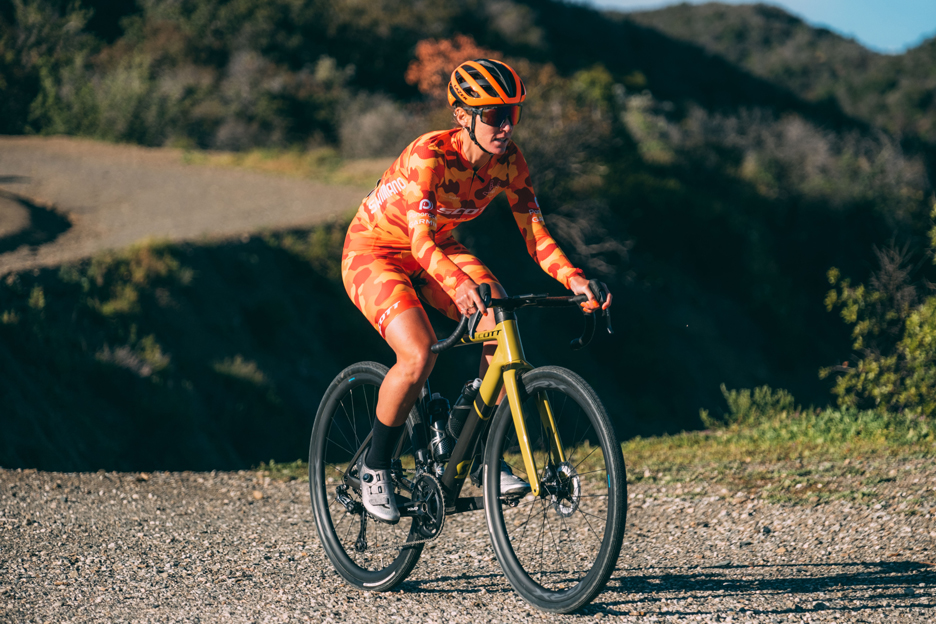
When I first heard your story, your general journey, I thought of Evelyn Stevens since she had a similar trajectory from the financial world to professional cycling.
Iz: Oh, I'm flattered, so, so flattered. It's really the tiniest world. Evie quit her job in New York to go ride pro after clipping into a bike for the first time at 26.
When she was retiring from racing, she wanted to move back to San Francisco and was looking to get back into finance. My mom works in finance in San Francisco and one of our friends connected Evie with her and wanted my mom to mentor her.
Because Evie is such a stud, by the time she and my mom got coffee, she'd already gotten her job, so my mom said, 'You don't really need me, but my daughter just got a bike for the first time, and is super into it.' So that summer, I rode with Evie a ton.
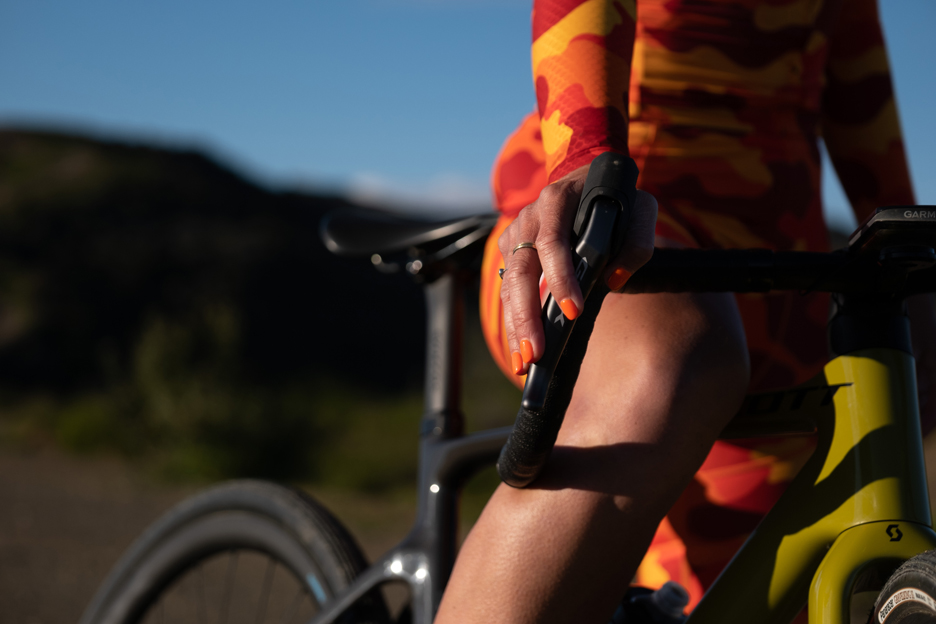
She connected me with the first coach I ever had, and I worked with him when I was a triathlete. I actually rode her TT bike. He called and said, 'I have Evie's TT bike that she rode in Rio. Do you want it?' All I had to do was fly to Boulder, get fit on it, and bring it home. So, I used that TT bike to qualify to be a pro triathlete, and then actually, a month ago, I gifted it to the UCLA triathlon team, with the hopes that someone in college just getting into it could get to ride it and go pretty fast.
I think Evie’s one of those people that is so much more than just a good athlete. People have such good things to say about her, and I think that is the most important.
Did it help to have someone walk a similar path that you were trying to walk?
Iz: I had it in my head that if Evie did it, I could do it too. I was used to male-dominated environments - when I was on the trading floor, I was always the only female in the room. Business school was two-thirds men, so it was more women than I was used to.
Now I'm back to cycling, where it's the same ratio as finance, and I'm used to it. If I can be a mentor or an example to the future generation of female cyclists, then that is something I would love to pay forward. Evie was a big part of showing me it could be done. She gave me confidence that I wasn't too old. I wasn't too new. I just needed to try.
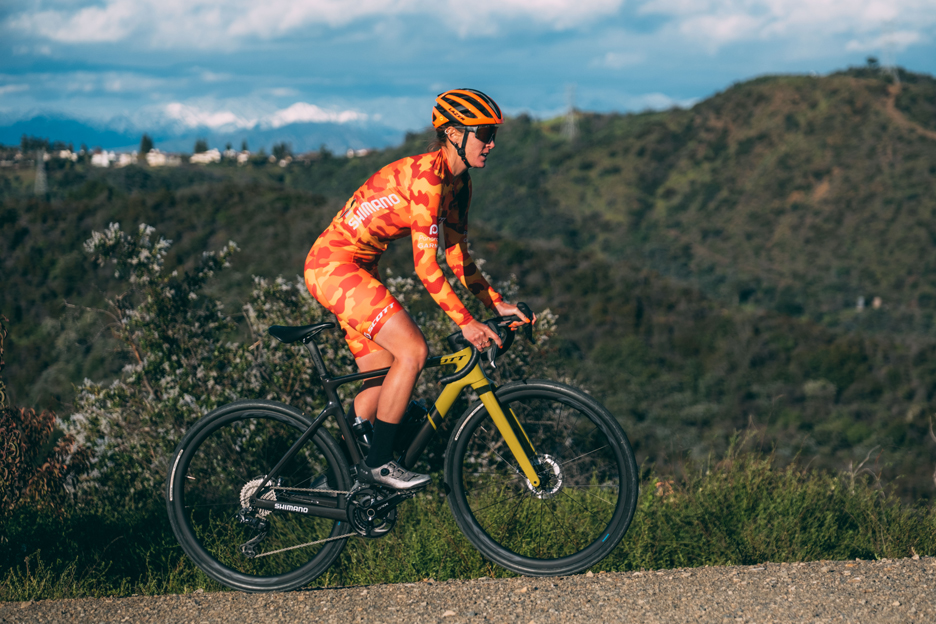
We regularly see a lot of big rides on your Strava. What's your favorite ride to do from your house?
Iz: I do most of my training on the road, and people are always surprised that there is so much good road riding in LA, all through the Santa Monica Mountains and things like that. That's where I do the majority of my intervals and my big training days.
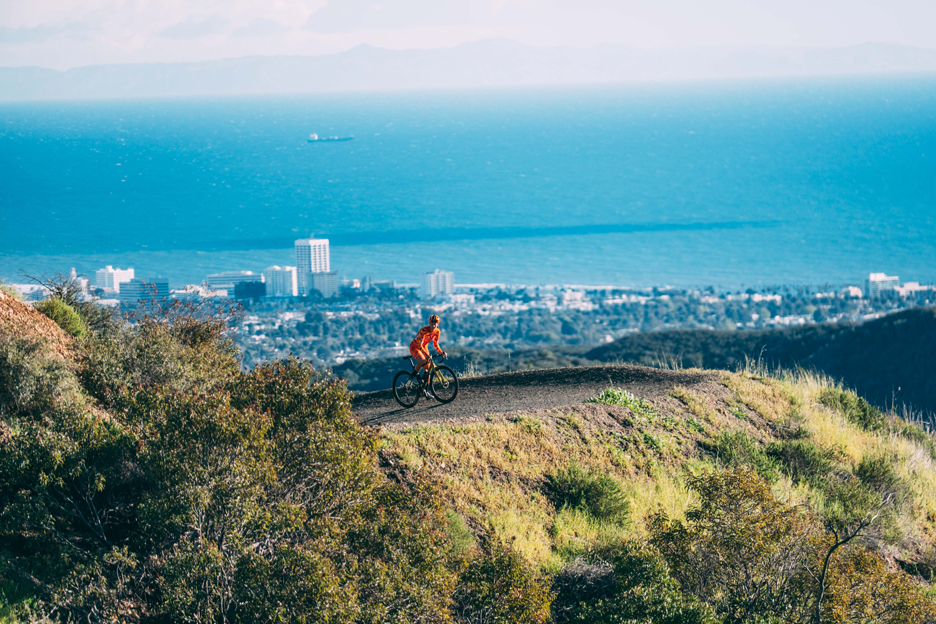
We don't have any rolling gravel hills, and many people say we just have mountain bike trails that happen to be fire roads. So, it's a lot of up and down. For gravel, I enjoy the local Sullivan Ridge, a fun 2,000-foot climb where you get to the top and have views into the city and then over into the Valley. From there, you can decide whether you want to do a two-hour ride or a seven hour-ride. You can go and crush yourself, which is super fun.
Are your favorite rides on a road bike on mixed terrain or a gravel bike all day on dirt?
Iz: It’s interesting because they’re so different. Here, you have to connect some of the dirt sections with road. The gravel bike is good at everything, which is very fun. When I was training for Leadville last year, we were putting together some big 10,000-foot days with gross climbs out further. For my favorite rides, it doesn't necessarily matter the surface, they're more like those days when you wake up early and you're making pancakes and you know you're going to do something really big that day. And you roll out of your house, and it's quiet and everyone else is still sleeping.
The same applies to racing. When you get up and you're like, 'I don't really know what's going to happen today, but it's going to be awesome. At some point, I'm going to want to quit, but I'm going to figure out a way to keep going.' I think those tend to be my favorites.
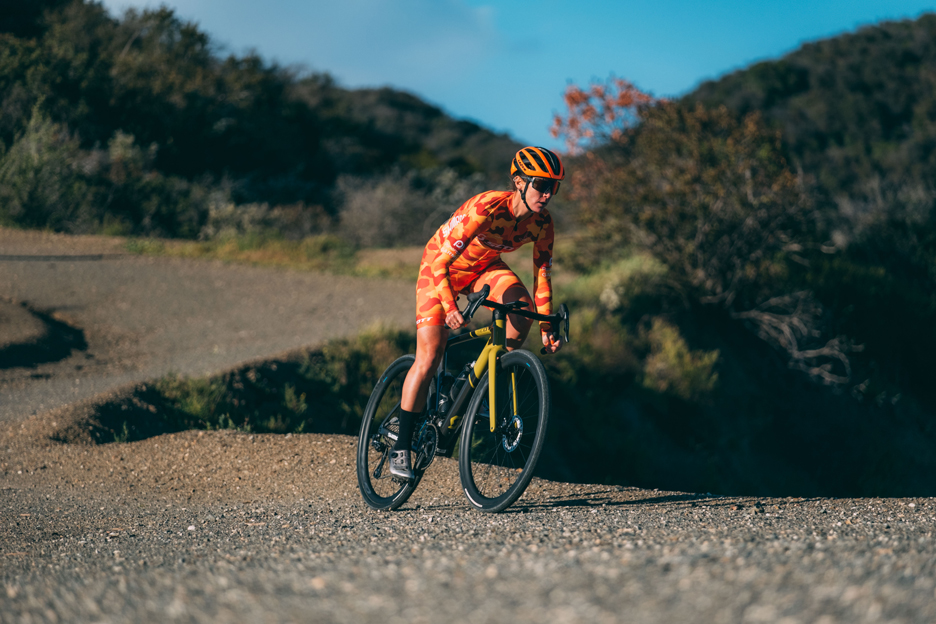
So, what’s the coolest place a bicycle has taken you?
Iz: We rode in France last year at the Haute Route France, and it was pretty cool to do the climbs they do in the Tour. Those climbs are just different. When your Garmin pops up a climb profile and you see 30 MILES OF CLIMBING…that's insane! I think those views and taking in some of those routes made it just one of the craziest places I've ridden. I haven't done much international riding, and I have a lot of places on my bucket list where I want to go.
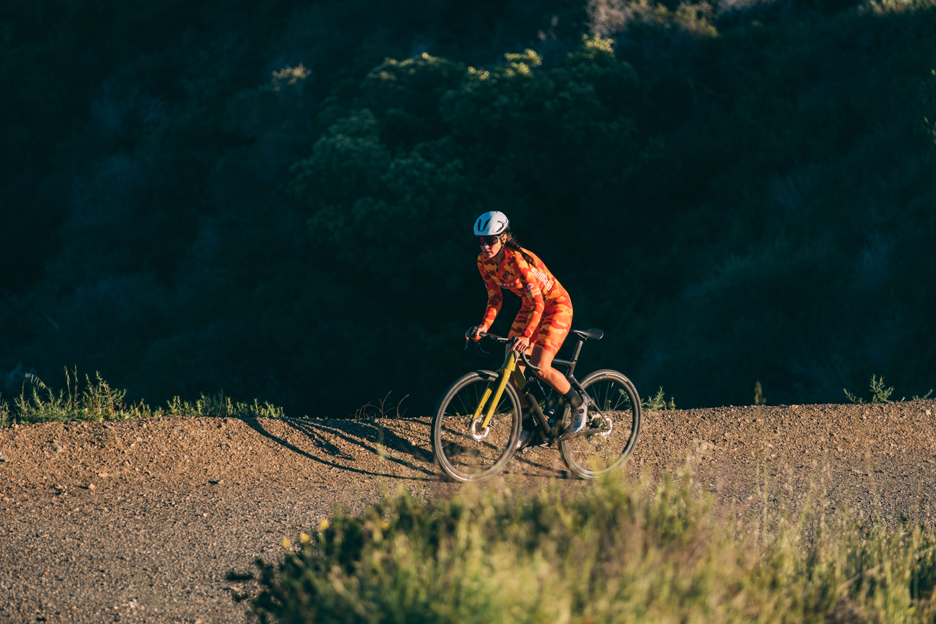
What’s the last good book you read?
Iz: Ohhhh… I’m going to do a little family plug. So, my uncle last year walked from his apartment in D.C. to New York City. It was 250 miles, basically, the path that the Acela Train goes. It's a corridor that people generally travel as fast as possible through. You typically either fly over it or take a train as fast as possible, paying an extra 50 dollars to go 30 minutes faster.
His plan was to slow down as much as possible and talk to everyone along the way. He even played baseball with the Mennonites. The path that he was on at one point was flooded, so these locals gave him a kayak to kayak up the road, which was like a river. And they picked up their kayak on the other side, and he kept walking. He wrote a book about the trip–it's called American Ramble. He was a writer and editor for the Wall Street Journal, so he has that background, but it's cool to see his perspective and also learn a little about American history along the way.
Do you think you’ll go back to the financial world?
Iz: That was originally the plan by going to business school, to go into FinTech. I really do like the world of finance, the numbers and the fast-paced environment, and things like that. I didn't love the super antiquated take-you-out-to-a-stake-dinner-get-a-nice-trade way that the traditional trading world still functions.
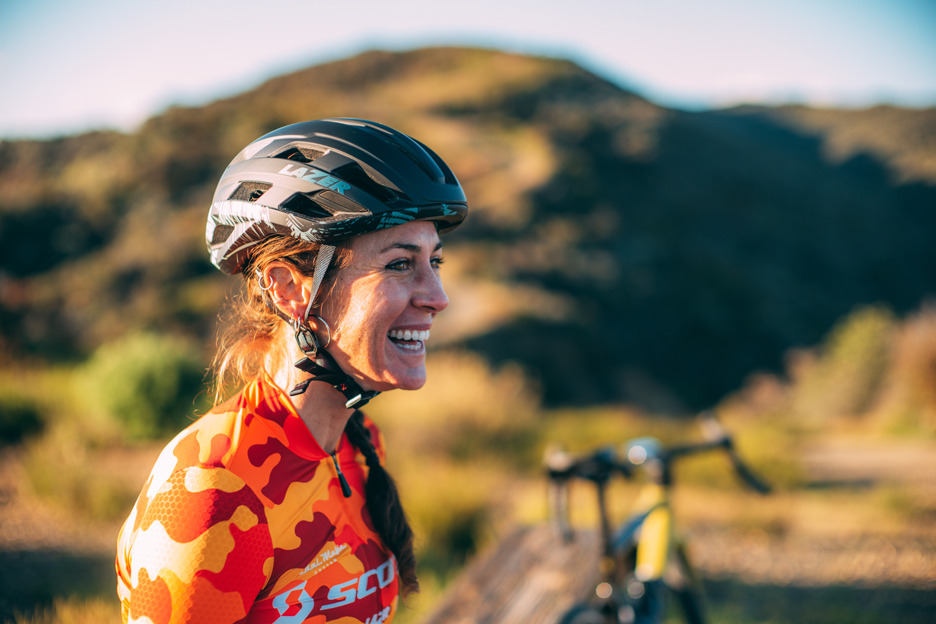
I wanted to have the combination of finance and tech elements and maybe work at a smaller company. In between the two years in business school, I worked for a company called Varo. They are a completely mobile bank, so it's basically the same as any brick-and-mortar retail bank, but it's lower cost because they don't have the overhead of having all the retail branches. I was working with their general counsel and the SEC when I was a business school intern there, and my plan was to go back there after school. I really enjoyed it and it seemed like it had a lot of people that had been in the traditional finance world and then decided that they wanted to make banking better. It felt like we were trying to make a good change. I liked that.
Now, after being a full-time athlete, this is a more interesting question. Do I go and get a job in FinTech or something like that and then just ride bikes for fun, or do I want to work for a bike company within the business side on strategy or finance or something like that? With the background I have, sometimes I get overwhelmed with what to do next. And I will have to figure that out at some point.
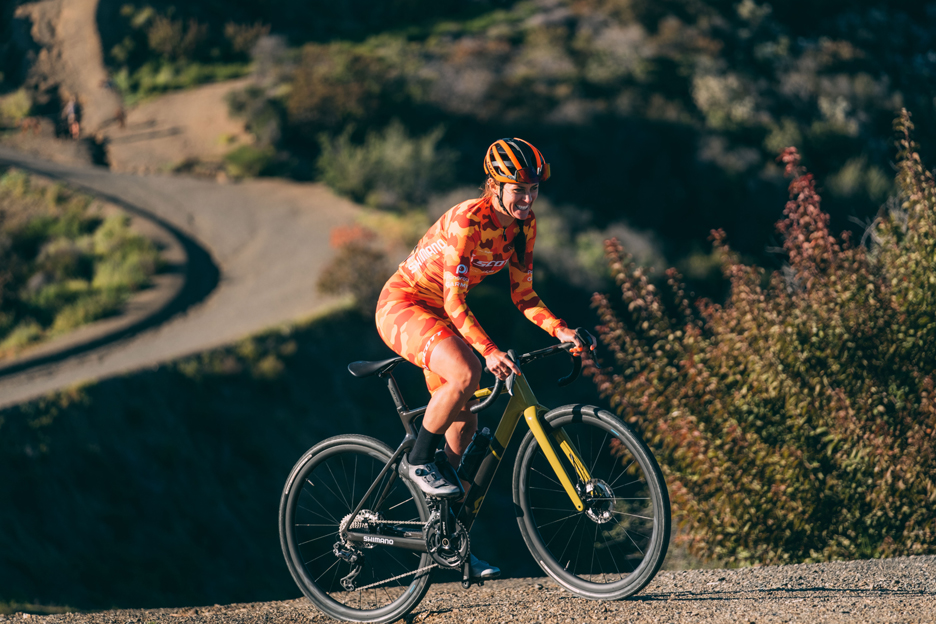
How do you hope to impact and inspire people through your riding and racing?
Iz: I want to continue to grow the sport. One of my mantras is "Fast and Friendly" because I think sometimes there's the idea that once you're fast, you no longer have to be friendly. You can be too cool for school. Normalizing the idea of being fast and friendly is a goal of mine. You can still be accessible and relatable. Even if it’s somebody’s first ride, I’m no better than them because I’m still learning as well. I hope to make an impact by spreading that idea.
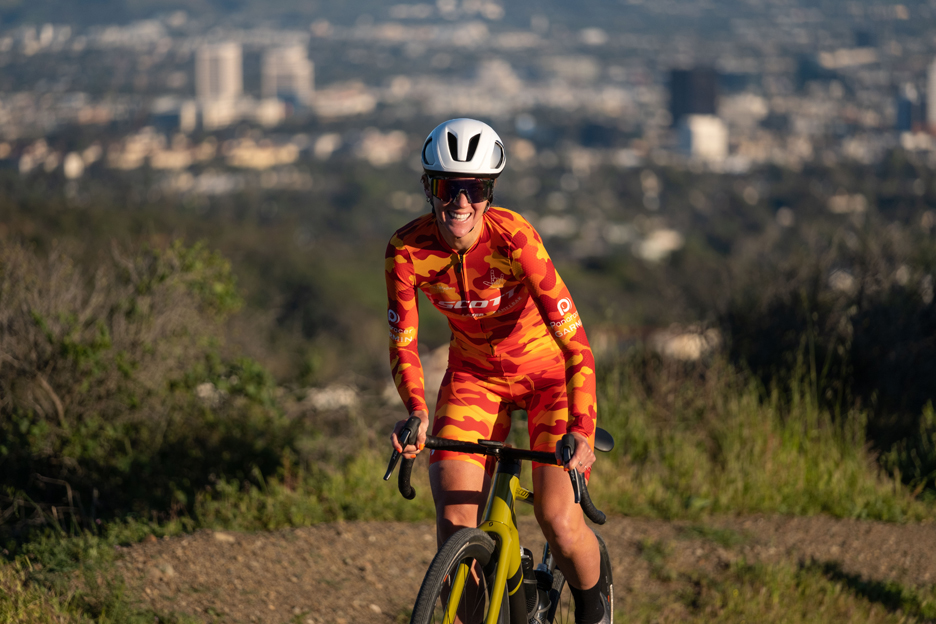
Also, trying to grow the sport diversity-wise. I enjoy the gravel scene maybe more than I enjoyed the triathlon scene in that it does feel more welcoming to people of all shapes and colors and socio-economic backgrounds and things like that. It sounds kinda cheesy, but gravel should be for everybody. Hopefully, you just need a bike and a helmet, and some shoes and hit the back roads. I think gravel has caught on because it's more accessible for everybody.
What advice would you give someone who didn’t grow up riding bikes and who wants to get into the sport, what would you tell them?
Iz: It's not too late! I think that cycling is very fun because it doesn't destroy your knees like running. It can be done later in life. It's interesting to be a professional athlete at 32 and have just gone pro at 30; that's absurd. If you were a soccer player and at 30 said I'm going to play professionally for the first time, they'd just say, "No, you're not."
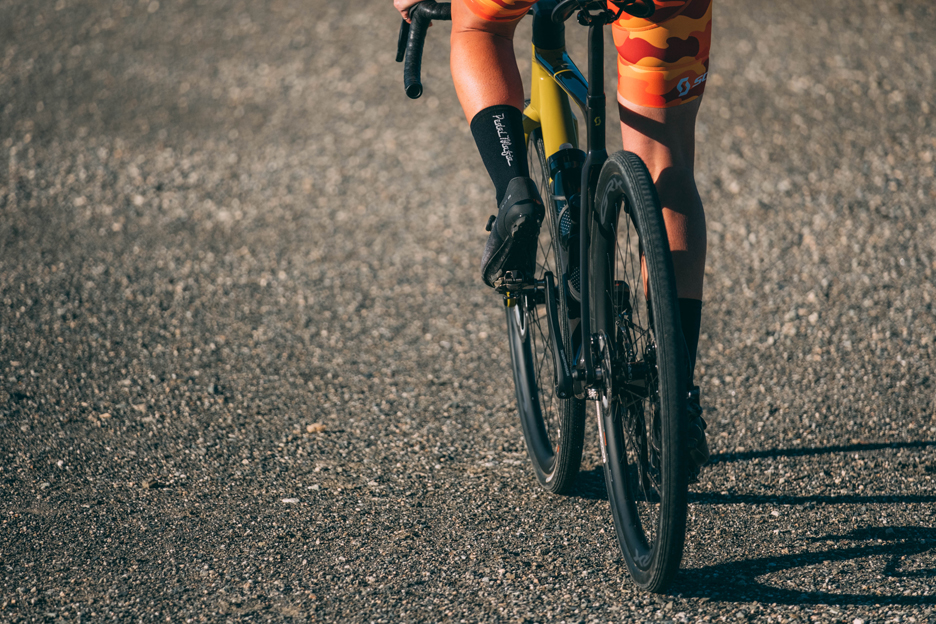
I think cycling is an interesting sport because getting into it later in life is relatively normal. Yes, I am racing against women who have done it since they were 15, but I think unless your parents were into it, it was pretty normal to have done another sport growing up.
It's not too late, and enjoy the process of it. I still remember my first 100-mile ride. The first time I climbed 10,000 feet. I think there are interesting milestones, and when people message me and tell me they are doing their first 100-mile ride, I tell them to enjoy it! And eat enough. Slow down if you need to, and just enjoy it all.
